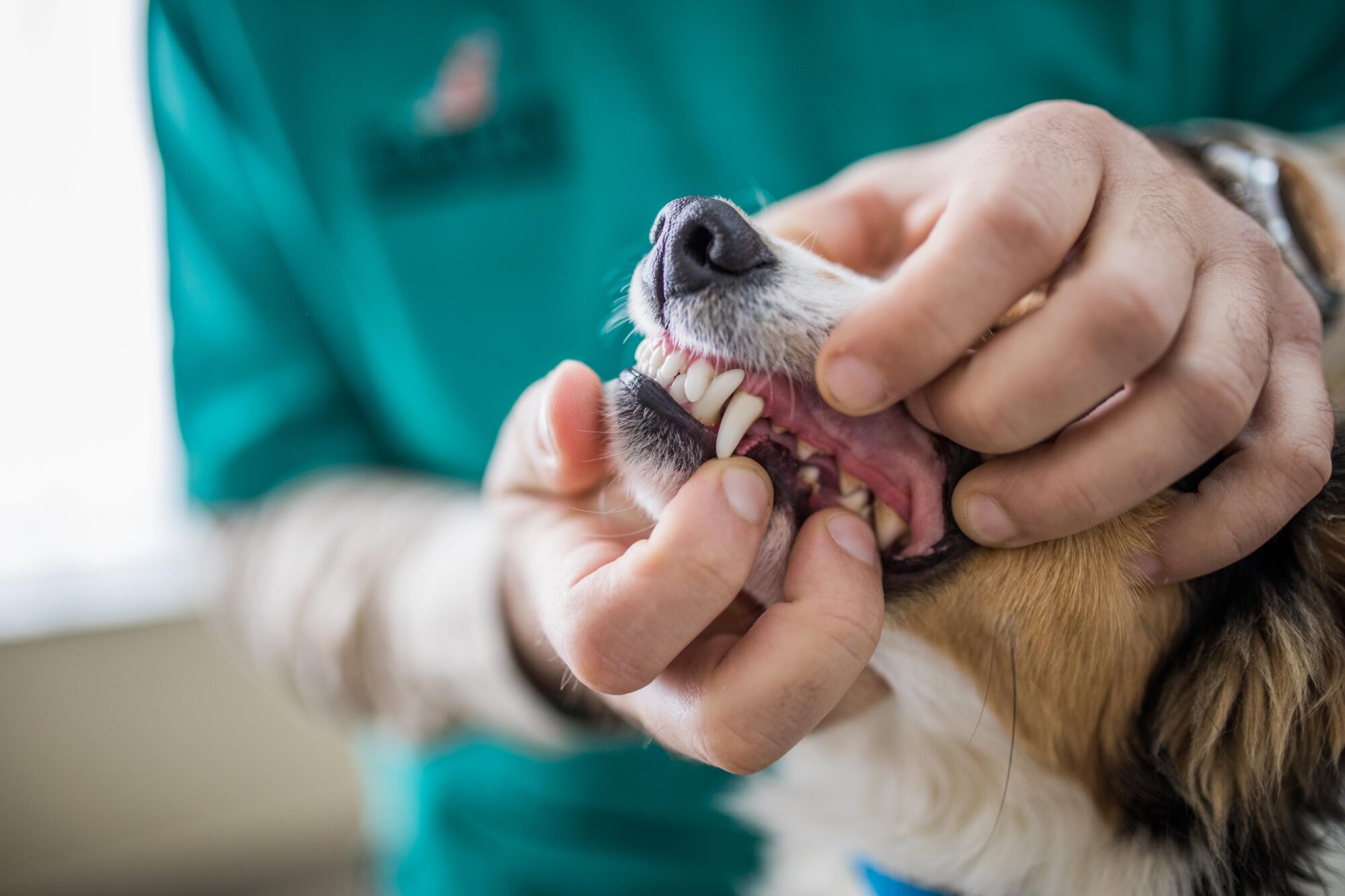Understanding Periodontal Disease in Pets: Causes, Symptoms, and Treatment

Did you know that pets suffer from dental problems just like people do? East Sacramento Veterinary Center is a huge advocate for the importance of pet dental health care. We feel that understanding pet gum disease and dental problems is important for all pet owners.
Dental Problems in Pets
Good dental care is essential to your pet’s overall health and wellness. Dental problems can cause other health issues, and affect quality of life.
We recommend that our patients have their teeth and gums checked annually for signs of trouble and to help keep them healthy.
Signs of dental problems in pets include symptoms like:
- Bad breath (halitosis)
- Visibly broken or loose teeth
- Discolored or tartar covered teeth
- Change in chewing
- Increased drooling
- Pain when the mouth is handled
- Bleeding or swelling associated with the mouth
Note that most pets do not stop eating just because they have dental disease. This means that routine wellness exams are your best bet for detecting trouble early.
Pet Periodontal Disease
Dental problems in animals can vary, similarly to people. Some of the more common issues that we see include:
- Broken teeth
- Retained roots
- Infected or abscessed teeth
- Oral cysts or tumors
- Bite problem
- Periodontal disease
- Cavities (although these are much less common in dogs and cats than people)
Periodontal disease in pets is definitely the most common dental condition that our staff treats. By the time a pet is three years old, they will most likely have some early periodontal disease.
When plaque settles on the teeth, it combines with bacteria to form hard tartar. We can often see the tartar above the gumline and sometimes even remove it, but the real enemy is the tartar below the gumline.
This subgingival tartar can lead to infection and damage to the bone surrounding the tooth that keeps the pet’s teeth in place. As periodontal disease progresses, it can lead to pain and the loss of teeth.
Periodontal disease not only affects your pet’s mouth, but has been found to cause kidney, liver, and heart muscle changes due to the spread of bacteria into the bloodstream.
Good Pet Dental Health Care
So what can you do as a proactive pet owner to help provide good oral care?
Prevention of most dental issues in pets revolves around the removal of plaque and tartar that accumulates on your pet’s teeth.
The best defense against this is regular brushing (ideally daily) at home with a pet-approved toothpaste. This can help to reduce the frequency of anesthetized dental cleanings needed by your pet. Many dogs and cats tolerate this as part of their grooming routine.
There are also other home care products that have been shown to be effective in pet dental health support. The Veterinary Oral Health Council maintains a list of foods, treats, chews, rinses, gels, and water additives that help reduce plaque and tartar.
Pet dental health care also relies on us working with you as a team. It is important to have anesthetized dental exams and cleanings as recommended so that we can diagnose and treat problems early. Once periodontal disease is present, it is not reversible, so acting before there are signs of trouble is key!
If you have questions about your pet’s dental care or any other topic, please contact us. We would love to support your goal of a healthy and happy family pet in any way that we can!
